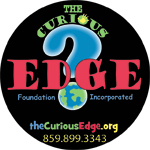Learning Differences Should Be Celebrated
By Kimberly Hudson
Did you know that one in five students has a language processing disorder that prevents them from reaching their maximum academic potential?
If your child is struggling in school, you need to get to the root of the problem.
Is the problem due to reading or spelling difficulties, or a language processing disorder?
Is it because they are so overwhelmed by an assignment that they don’t know where to start?
Assessments are easy and painless and can determine what is causing ongoing struggles at school.
Difficulties in school should not prevent your child from pursuing and achieving his goals.
He may have trouble reading, but there are other attributes he could use to his advantage.
It is important to think more about your child’s strengths than his weaknesses.
Too much attention paid to weaknesses can undermine your child’s self-confidence.
Businessman and investor Charles Schwab knew his strengths and weaknesses.
Instead of trying to be good at everything in school, he learned early on that he liked numbers and focused on that as his career goal.
He took the initiative to learn everything he could about business and investments, and persevered in reading despite his difficulties.
After the success of his investment firm, Charles Schwab Corporation, he established the Charles and Helen Schwab Foundation in order “to help children with learning and attention difficulties to lead satisfying and productive lives in a supportive environment that validated their unique qualities.”
There are plenty of resources to assist struggling learners to achieve success.
Providing students with the necessary tools to succeed, reminding them of their strengths, and helping them develop other skills will equip them to find happiness and confidence.
Learning differences should be celebrated!
Help your child turn his troubles into triumphs.
Like Robby Novak, better known as Kid President, says, “What if Michael Jordan had quit after he didn’t make the basketball team? He never would’ve made Space Jam…
“What will be your Space Jam? What will you create that will make the world awesome?”
Your child has the potential for AWESOME.
Give him the necessary tools to unlock that potential. After all, “We were made to be awesome.”
Resource: The Power of Dyslexic Thinking by Robert W. Langston.

